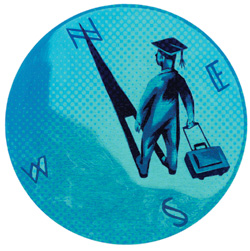The chance of becoming a lawyer just got a little slimmer for Aboriginal peoples and others from Ontario’s northern communities.
 Lakehead University, in Thunder Bay, proposed to establish a new law school that would focus on Aboriginal legal issues and access to justice in northern and rural communities. Preference would be given to Aboriginal students and students from northwestern Ontario, though admission would be open to all. While benchers have expressed their support, the provincial government recently announced it will not approve any new law schools, due to a shortage of articling positions.
Lakehead University, in Thunder Bay, proposed to establish a new law school that would focus on Aboriginal legal issues and access to justice in northern and rural communities. Preference would be given to Aboriginal students and students from northwestern Ontario, though admission would be open to all. While benchers have expressed their support, the provincial government recently announced it will not approve any new law schools, due to a shortage of articling positions.
As an Aboriginal woman from Thunder Bay who graduated from law school at the University of Toronto, I disagree with the province’s reasoning.
It is not clear that there is a shortage of articling positions in the North. In fact, Lakehead’s survey of Northern Ontario law firms found sufficient articling placements available for its prospective graduates.
It takes just as long to drive from Thunder Bay to Toronto as it does to drive from Toronto to Montgomery, Alabama. Imagine how inaccessible southern Ontario must seem to Northern Ontario’s many fly-in First Nations communities. Lakehead’s proposal notes that since the late 1990s, there has been a decrease in the already relatively small group of students from Northern Ontario attending law school, and cites the high cost of moving to, and living in, southern Ontario as the primary reason. Costs aside, sending students away from northern communities comes at an even higher price. The chances that those students will return to serve their communities as lawyers is diminished significantly once they leave. Lakehead’s proposal seeks to address the fact that lawyers in northern and rural communities are retiring but are not being replaced by a new generation.
The law school experience can be challenging enough without managing culture shock along with it. Over time, I have come to love the sense of being completely surrounded by people in Toronto, but the sheer volume of people, as opposed to trees, was sometimes overwhelming in my first years here. The government’s decision stacks the deck in favour of those who already live less than a two-day drive from six different law schools.
If law school were merely a place to make new friends, these issues would seem insignificant, but understanding and practising law is a gateway to the skills and tools required to effect social change. Many First Nations communities in Northern Ontario live in Third World conditions and have outstanding land claims and treaty disputes that have festered unresolved for decades, so social change is understandably high on their agenda.
I would love to return to Northern Ontario and join a firm that focuses on Aboriginal rights litigation, but no such firm exists. The majority of First Nations bring their Aboriginal rights litigation to firms in southern Ontario. As talented and sharp as these lawyers surely are, it is not difficult to see how the distance, often combined with a cultural gap, raises an access-to-justice issue.
Although the law schools in Ontario do offer a few courses on Aboriginal issues, none of them provide the focus these issues deserve. A law school that teaches the common law along with the fundamentals of Aboriginal legal systems, and that is within easy access of both Aboriginal students and First Nations communities, seems like a natural solution.
Karen Drake, a citizen of the Métis Nation of Ontario, is currently completing a clerkship at the Ontario Court of Appeal
Illustration by Thomas Fuchs

